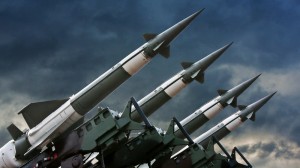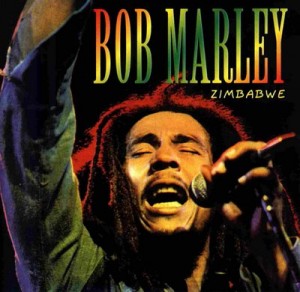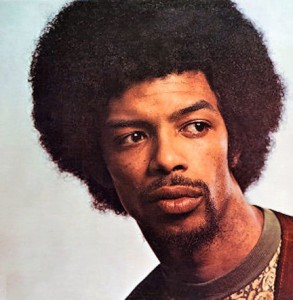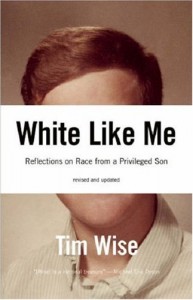A few people have asked me for book recommendations recently. Here are some books I’ve read over the past couple of years that I think are very much worth reading (assuming an interest in youth culture, people’s struggle against injustice and oppression, race, gender, empire, war, history and music).
I’ll keep this list updated with new books as I read them. Feel free to make suggestions in the comments.
—
Huey P Newton – Revolutionary Suicide
If you only read one book about the Panthers, this should probably be the one. Huey’s autobiography is a detailed, moving and insightful account of the Panthers’ rise in the late 1960s. One of the most important aspects of this book is how the Panthers really united theory and practice (at a time when the rest of the left in the US was basically just a talking shop). The Panthers identified the real, actual needs in the community around which people could be mobilised, and they used theory to develop the way they addressed those needs. Another important aspect of this book is the idea that the restructuring of society is a process that starts *now*, not on the ‘day of a revolution’. Organising communities to address their own needs = laying the ground for socialism.
Ramzy Baroud – My Father Was A Freedom Fighter
A moving and hugely informative book that combines a personal biography with a very well-told history of the Palestinian struggle in general and Gazan life in particular. The type of book you don’t want to put down.
Tim Wise – White Like Me
Everyone needs to read this book. A brilliant, funny, incisive analysis of how white privilege, white supremacy and race prejudice work. It is especially compelling because it is based on the life experiences of a middle class white male, reflecting on how race privilege has affected his life. Honestly this is must-read.
Mumia Abu Jamal – We Want Freedom
There are literally dozens of Black Panther autobiographies and retrospectives out there. Mumia’s is, in many ways, the best (at least out of the ones I’ve read – and I’ve read a lot!). As well as giving a general outline of what the Panthers did and what made them so relevant, he also gives a very interesting critique of some of the problems that caused them to fall apart, as well as addressing some of the lesser-known aspects of the Panthers, such as their role in empowering women.
Jeff Chang – Can’t Stop Won’t Stop
If you are into hip-hop, you really (really) should read this exceptionally good history of the hip-hop generation. I’m not going to go on about it here, because I’ve written a review, which you can read here.
MK Asante Jr – It’s Bigger Than Hip Hop
Another unmissable book related to hip-hop (and wider social justice issues). In my review I describe it as “a discussion document for a new generation (the ‘post-hip-hop’ generation) to help define and develop its role in the struggle for a better future.” Read the review.
bell hooks – Class Matters
A very thought-provoking work from someone who usually writes about race and gender issues, tackling the question of class hierarchy – how it affects our lives, how deeply it is ingrained in our society, and how it is bound up with race and gender. Although it is based on an analysis of the US, it definitely resonates for readers elsewhere in the ‘first world’.
Franz Fanon – The Wretched of the Earth
Not exactly easy to read (in the sense that it’s not very structured), but this book has so much insight about the colonial mentality, the psychology of anticolonial revolution, the dichotomy between the urban workers and the peasant masses, the million ways used by erstwhile colonisers to maintain oppression, and so on. Plus the overriding theme is very powerful – the idea that colonial slaves, so oppressed, so debased, can only make themselves real men and women through revolutionary violence against their oppressors. Get the version with Sartre’s introduction – it’s amazing.
John Hagedorn – World of Gangs
An eye-opening account of what gangs are, where they operate, how they operate and what function they fulfil in society. Moving away from the traditional narrative (based on how to ‘stamp out’ gangs), Hagedorn looks at the social reality that leads to the emergence of gangs, and the deep roots that many gangs put down; he arrives at a conclusion surprisingly close to that reached by the Black Panthers and other groups in 1960s USA: that the most effective form of intervention with regard to gangs is to push them away from violence in the community and towards fighting for social justice. Interestingly, he discusses hip-hop as a means to communicate this message. Tupac would be pleased!
Walter Rodney – How Europe Underdeveloped Africa
A passionate and essential account of how European colonialism and neocolonialism created what we call the ‘third world’, via plunder, the slave trade, and every form of political trickery known to man. A classic.
Naomi Klein – The Shock Doctrine
If you want to understand the modern world of neoliberal free market madness, you need this book. An extremely well-written, convincing expose of the record of privatisation and deregulation that has led to a huge increase in the gap between rich and poor worldwide. I think Klein’s critiques of ANC and China are somewhat off the mark, but that needn’t detract from an excellent book.
Mike Davis – Planet of Slums
Not exactly feel-good reading, but very insightful and important. Davis documents the process whereby third world farmers are forced off their land and have to compete for limited economic opportunities in the cities. The result is a rapid increase in makeshift housing, vast unemployment, and rising levels of crime. The counterpart to this is the migration of the super-rich to high-security gated communities where they can exist free from the threat of all the violent crime and poverty. The worldwide slum population is expected to reach two billion by 2030.
Paulo Freire – The Pedagogy of the Oppressed
This book is incredibly difficult to read! But well worth the effort in my opinion. Freire exposes the way that class society recreates itself within traditional education systems, and explores alternatives based on the idea of ‘teacher’ and ‘pupil’ becoming collaborators in a shared goal of moving towards freedom, constantly learning from one another and treating each other as equals.
Michael Dyson – Know What I Mean?
Dyson is *the* leading public intellectual on issues surrounding hip-hop. This book deals with some very tricky and contentious subjects – including ghetto authenticity (‘realness’), conscious vs slack, masculinity, violence, the generation communication breakdown, and more. Dyson stands out from most of the rest of his generation of intellectuals due to his focus on, and empathy with, the youth. He doesn’t fall into the trap of condemning the younger generation; rather he makes the effort to listen to them, understand them, learn from them, and try to open respectful and useful dialogue with them.
CLR James – The Black Jacobins
The definitive history of Haitian slavery and the Haitian revolution – the most successful slave revolt of all time, which led to the establishment of the first independent black republic outside Africa. CLR James gives a detailed and very well written history.
John Holt – How Children Learn
A departure here from issues of class and race! This is a really interesting book on early education, and a very human tribute to the innate brilliance of children. One of the first books that made me realise how completely warped our school system is, and how its most significant effect is to destroy children’s natural love of learning, replacing it with fear and individualism.
Robert Newman – The Fountain at the Centre of the World
I’m not much of a novel reader, but this is genuinely excellent. The writing is fantastic, the plot is intricate, and the message is important. In essence, this book is about collective action being the most fundamental aspect of human nature, and how individuals become truly human – truly free – by participating in collective action towards solving their own problems. Incidentally, if you haven’t watched Rob Newman’s ‘History of Oil’ show, stop what you’re doing right now, find it and watch it. Thanks.
Lloyd Bradley – Bass Culture
A lengthy but extremely enjoyable history of reggae, from ska to dancehall, taking in roots, lovers’ rock and rocksteady along the way.
Essential reading if you’re into reggae (or, I would argue, any of the UK dance music scenes that are hugely influenced by reggae – in particular jungle and grime). Along with the music, Bradley does a great job of providing the social context, so you also pick up important aspects of Jamaican history, including slavery, British colonialism, Rastafari, Marcus Garvey, Walter Rodney, independence, the JLP-PNP turf wars, the rise of the cocaine economy, and much more.
Phil Piratin – Our Flag Stays Red
Piratin’s book picks up a very similar theme to Huey Newton’s ‘Revolutionary Suicide’, but in the context of London’s East End in the 30s and 40s. This is essential reading for anyone with the slightest interest in community and anti-fascist mobilisation, and gives some important clues for modern-day activists trying to develop their strategies.
Benjamin Zephaniah: Gangsta Rap
A novel. Benjamin Zephaniah is a brilliant poet, novelist and activist. I am not a fan of the idea of the national curriculum, but this should be on it! It is immensely readable, uses very unpretentious language, and tells a story that is highly relevant and important for today’s teenagers about how the system uses our culture against us.
Eric Williams: Capitalism and Slavery
I read this about the time of the bicentenary of the abolition of slavery in the British colonies, around which there was much self-congratulatory hype in the press. This book gives a very clear picture of the economic and political basis of slavery, and shows that abolition was not the result of terribly nice white men like William Wilberforce, but a combination of the pressure of slave revolts with the disappearance of the economic basis of slavery. It’s fairly difficult reading (it was Williams’ PhD thesis), but well worth the effort.
AL Morton: People’s History of England
Does what it says on the tin! Being a product of the British education system, I had a *very* limited understanding of British history when I left school. Morton gives a solid overview of English history from the first settlements on these isles up until the early 20th century (when the book was written).
Ilan Pappe: The Ethnic Cleansing of Palestine
This is a must-read for anyone with an interest in the Palestinian question. Pappe gives a huge amount of detailed evidence showing the true nature of the 1948-49 war – not a heroic David-and-Goliath “war of independence” by the zionists, but a large-scale ethnic cleansing and land grab.
Nick Davies: Dark Heart
Davies documents the intense poverty in which a significant minority of people in Britain live. The author’s descriptions are excellent, and he gives a very clear explanation of the relationship between unemployment and social degradation.
Karl Marx: Value, Price and Profit
The ultimate beginner’s guide to economics. Value, Price and Profit gives a solid overview of capitalist political economy. It’s reasonably easy to understand, and only a hundred or so pages.
Vladimir Lenin: Imperialism – the Highest Stage of Capitalism
We often talk about imperialism, but clearly a lot of people don’t know what it means. This book explains exactly what imperialism is and how it operates. Much has changed in the century or so since this book was written, but the fundamental relations Lenin describes in this book remain essentially the same.
Paul Robeson: Here I Stand
A moving and fascinating autobiography of one of the 20th century’s great heroes. Robeson gives a very useful account of the struggle for civil and human rights in the US in the earlier part of the 20th century, and positions it firmly within the context of the international struggle of oppressed people for their freedom (thereby leaving a weighty intellectual inheritance for Malcolm X, who took up this theme three decades later).
The Autobiography of Malcolm X
An incredibly powerful, inspiring book about how a man at the bottom of the heap – an uneducated, imprisoned small-time crook – turned himself around to become the most widely-recognised, eloquent and militant fighter against racism and for justice. Everybody needs to read this.
A Narrative of the Life of Frederick Douglass, an American Slave (contributed by Ameer Hamzah Hakim)
This autobiography is one of the greatest firsthand accounts of the brutality of slavery and the injustice of stealing a man’s freedom. It is a book about a slave who learned a skill so dangerous it frightened the life out of his white owners – a slave who learned how to read. It is often said an educated man will demand his freedom; the life of Frederick Douglass is a great example of this. Frederick Douglass is a true giant of history with a story that deserves to be read.
 This week we’ve heard that not only have the Olympics disrupted our transport system more than snow blizzards on top of autumn leaves, but that they also meant that our city is to be militarised, quite literally, out of the money this whole country, not just London, pays in tax. The Royal Navy have deployed their largest assault vessel, HMS Ocean, in Greenwich, Marines encircle our coast, in the city centre itself there will be 12,500 “Olympic Police, 13,500 armed services (2,000 of which fully armed), 5,000 specialist police, 1,000 in logistical support, not to mention the 7,500 private security forces roaming the street. A combined force of 23,700 security forces will restrict liberty for the “safety” of us all. Security on such a vast scale will be overseen by that beacon of democracy G4S, the private security company that has recently made inroads into schools, prisons and roads– big societing it up.
This week we’ve heard that not only have the Olympics disrupted our transport system more than snow blizzards on top of autumn leaves, but that they also meant that our city is to be militarised, quite literally, out of the money this whole country, not just London, pays in tax. The Royal Navy have deployed their largest assault vessel, HMS Ocean, in Greenwich, Marines encircle our coast, in the city centre itself there will be 12,500 “Olympic Police, 13,500 armed services (2,000 of which fully armed), 5,000 specialist police, 1,000 in logistical support, not to mention the 7,500 private security forces roaming the street. A combined force of 23,700 security forces will restrict liberty for the “safety” of us all. Security on such a vast scale will be overseen by that beacon of democracy G4S, the private security company that has recently made inroads into schools, prisons and roads– big societing it up.



